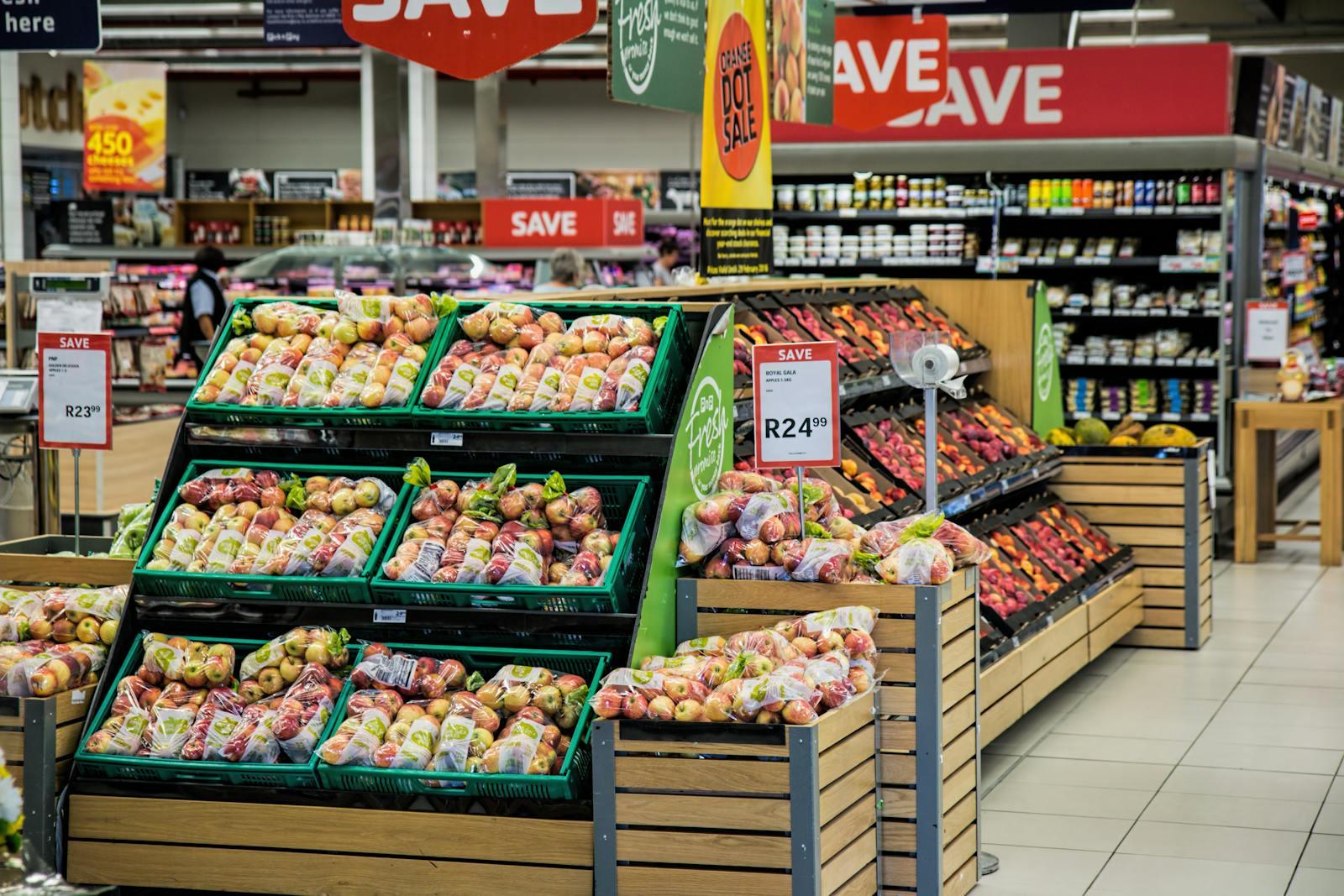Why Detroit Grocery Costs 2025 Are Rising
Food costs across Michigan rose in early 2025, but Detroit saw sharper increases than most metro areas. A mix of supply chain challenges, rising fuel prices, and higher wages in the distribution sector pushed up the price of basics.
A gallon of milk is up nearly 10% since January.
Meat and poultry climbed by 12% in local markets.
Fresh produce—especially seasonal greens—cost 15% more compared to 2024.
For working families, especially in neighborhoods with limited grocery access, these increases hit hard. Detroit grocery costs 2025 aren’t just a reflection of inflation—they highlight a deeper issue of food access and economic inequality.
The Role of Food Deserts in Grocery Inflation
Detroit is home to dozens of “food deserts”—areas where residents lack easy access to affordable, healthy groceries. In these neighborhoods, convenience stores often replace supermarkets, selling limited fresh options at inflated prices. This makes Detroit grocery costs 2025 even steeper for those already on tight budgets.
Entrepreneurs recognized the gap, and a wave of startups and co-ops are stepping up to change the game.
Startups Disrupting the Grocery Market
Detroit grocery startups are approaching the problem with creativity and grit. They’re not only lowering costs—they’re reshaping the way people shop.
Mobile Grocery Trucks – Think of them as food trucks, but for fresh produce and essentials. These trucks park in underserved neighborhoods, offering everything from eggs and milk to greens at prices lower than convenience stores.
Delivery-First Grocery Apps – Startups like locally run grocery apps are partnering with Detroit suppliers to deliver food directly to households, bypassing major chains. The reduced overhead translates into lower costs for consumers.
Shared Bulk Buying Programs – Entrepreneurs are creating platforms where families can pool funds to buy in bulk, slashing per-unit costs.
Healthy Meal Box Startups – Inspired by national meal kit trends, Detroit founders are offering affordable soul-food-inspired meal boxes sourced from local farmers.
By targeting Detroit grocery costs 2025 directly, these startups are proving that business innovation can ease household stress.
Co-ops & Community-Led Solutions
Food cooperatives are also playing a major role. Unlike traditional grocery stores, co-ops are owned and managed by community members. This keeps profits local and prices fair.
Detroit People’s Food Co-op is a rising star, with plans to expand operations and offer fresh produce at affordable prices.
Smaller neighborhood co-ops, often launched by church groups or block associations, are creating mini-markets that undercut chain prices.
The co-op model ensures that residents aren’t just consumers—they’re owners with a stake in keeping prices manageable.
Jobs Created by Grocery Startups
Detroit grocery costs 2025 don’t just affect consumers—they create opportunities for workers, too. Every mobile truck, co-op, and startup creates jobs in stocking, delivery, marketing, and logistics. Unlike big-box chains, these jobs stay rooted in the community.
Some programs even provide training in digital skills and food handling, ensuring Detroiters gain employable experience while serving their neighborhoods. For students and part-time workers, these roles offer flexible hours, while for long-term residents they represent stability in a volatile job market.
The Tech Edge: Grocery Meets Data
Several Detroit grocery startups are using technology to fight inflation. AI-driven inventory systems track which neighborhoods need which products most, reducing waste. Predictive analytics help startups know when prices are about to spike, allowing them to bulk-buy early and shield customers from cost surges.
In 2025, Detroit’s startup culture isn’t just about cars and mobility—it’s about groceries, too.
Challenges to Overcome
Of course, the road isn’t easy. Detroit grocery startups and co-ops face real obstacles:
Licensing and Permits: Navigating city regulations slows down new ventures.
Distribution Costs: Fuel and trucking remain expensive.
Competition from Chains: Big-box retailers often undercut prices with loss leaders, making it harder for small startups to compete.
Awareness: Some residents simply don’t know about co-op memberships or mobile trucks, so outreach is critical.
Still, Detroit grocery startups continue to adapt. By leveraging community trust and cultural relevance, they are building loyal customer bases that large chains struggle to replicate.
How Detroit Families Can Take Advantage
If you’re feeling the pinch of Detroit grocery costs 2025, here are some ways to stretch your dollar:
Join a local co-op—membership often comes with discounts and voting power.
Look out for mobile grocery trucks in your neighborhood—they usually post routes on social media.
Consider meal box subscriptions that source from Detroit-area farmers—they’re fresher and often cheaper than chain store kits.
Support local startups through repeat business—your loyalty keeps prices down long-term.
Looking Ahead: The Future of Detroit Grocery Startups
Detroit grocery costs 2025 may be high, but the city’s entrepreneurial spirit is higher. Over the next two years, expect to see more hybrid grocery models—half physical store, half digital platform. Partnerships with urban farms will likely expand, creating direct farm-to-table pipelines inside Detroit neighborhoods.
Co-ops are also expected to grow stronger, with some predicting that Detroit could be home to the largest Black-led urban grocery cooperative in the Midwest by 2027. If achieved, that would mark a historic moment in the fight against food deserts and inflated prices.
Detroit grocery costs 2025 may feel heavy, but the fight against inflation is alive in the city’s kitchens, trucks, and co-ops. By supporting local startups and community-led solutions, Detroiters are showing that even in tough times, innovation and grit can put food on the table without breaking the bank.










